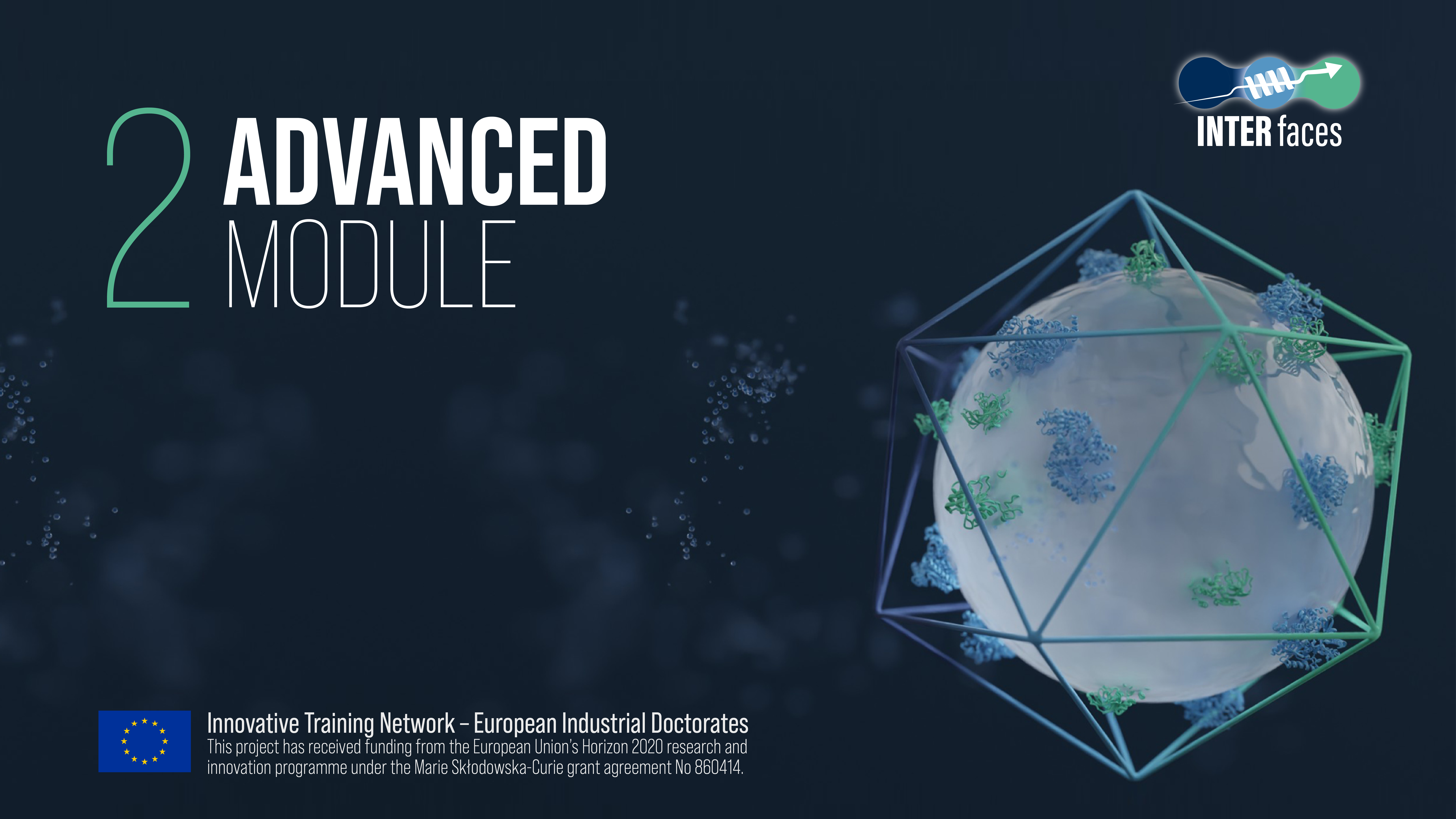Tailored Materials and Enzymes for Industrial Processes – Advanced Module
Course start: 28. siječnja 2026
Tailored Materials and Enzymes for Industrial Processes – Advanced Module
- Prof. Dr. Selin Kara
- Prof. Fernando López Gallego
- Assoc. Prof. Juan Manuel Bolivar
- Prof. Harald Gröger
- Prof. Iván Lavandera
- Prof. Vicente Gotor-Fernández
- Dr. Dr. Alba Díaz-Rodríguez
- PhD Laura-Carlota Paz
This course is part of a MOOC series: Tailored Materials and Enzymes for Industrial Processes
Scientific classification:
Course start: 28. siječnja 2026
Tailored Materials and Enzymes for Industrial Processes – Advanced Module
- Prof. Dr. Selin Kara
- Prof. Fernando López Gallego
- Assoc. Prof. Juan Manuel Bolivar
- Prof. Harald Gröger
- Prof. Iván Lavandera
- Prof. Vicente Gotor-Fernández
- Dr. Dr. Alba Díaz-Rodríguez
- PhD Laura-Carlota Paz
This course is part of a MOOC series: Tailored Materials and Enzymes for Industrial Processes
-
Scope: 8 units
-
Effort: 1 hour/week
-
Current participants: 55
-
Licence: CC BY-SA 4.0
-
Course start: 28. siječnja 2026
-
Course end: -
-
Current status: Ongoing course
-
Available languages:
Course details
Content overview
General information about the course
The iMooX-course “Tailored Materials and Enzymes for Industrial Processes – Advanced Module” focusses on state-of-the-art enzyme immobilization techniques, different methods used based on carrier materials and binding chemistries, assessment of immobilized enzymes' performance, and the use of immobilized enzymes in different reactors. Furthermore, we will introduce industrial biocatalytic applications synthesizing chemicals and downstream processing methods towards their isolation. In total nine Units were designed within the three main Topics (Design and characterization of immobilized biocatalysts, Design of reaction cascades, Process Intensification and Scaling), that will cover themes from heterogenization of enzymes and use of them in different reactor setups, also in an industrial environment. The units will be completed with some interviews between young scientists and industrial biotechnology leaders and experimental videos. After each lecture, a quiz must be completed and passed to successfully end the corresponding unit. The course is not only taught for students at BSc. and MSc. study levels but also to attract attention from industrial chemists interested in applying enzymes to synthesize chemicals for our daily use.
While this course can stand alone, it has been designed as part of a three MOOC series of “Tailored Materials and Enzymes for industrial Processes”:
-
“Tailored Materials and Enzymes for Industrial Processes – Basic Module”
-
“Tailored Materials and Enzymes for Industrial Processes – Advanced Module”
-
“Tailored Materials and Enzymes for Industrial Processes – Sustainability Module”
We highly recommend attending all these three MOOCs in the intended order for the best learning experience.
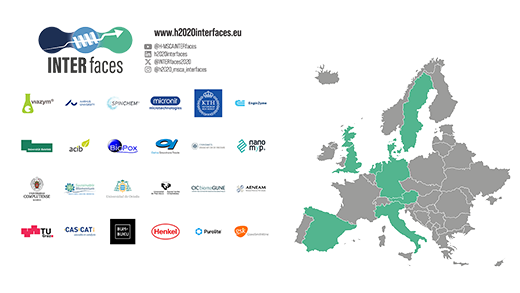
This course has been developed and realized in the frame of the project INTERfaces - Heterogeneous biocatalysis reaction cascades training network (H2020 Marie Skłodowska-Curie Actions (MSCA) Innovative Training Networks (ITN) – European Industrial Doctorates (EID)).
This project has received funding from the European Union’s Horizon 2020 research and innovation programme under the Marie Skłodowska-Curie grant agreement No 860414.
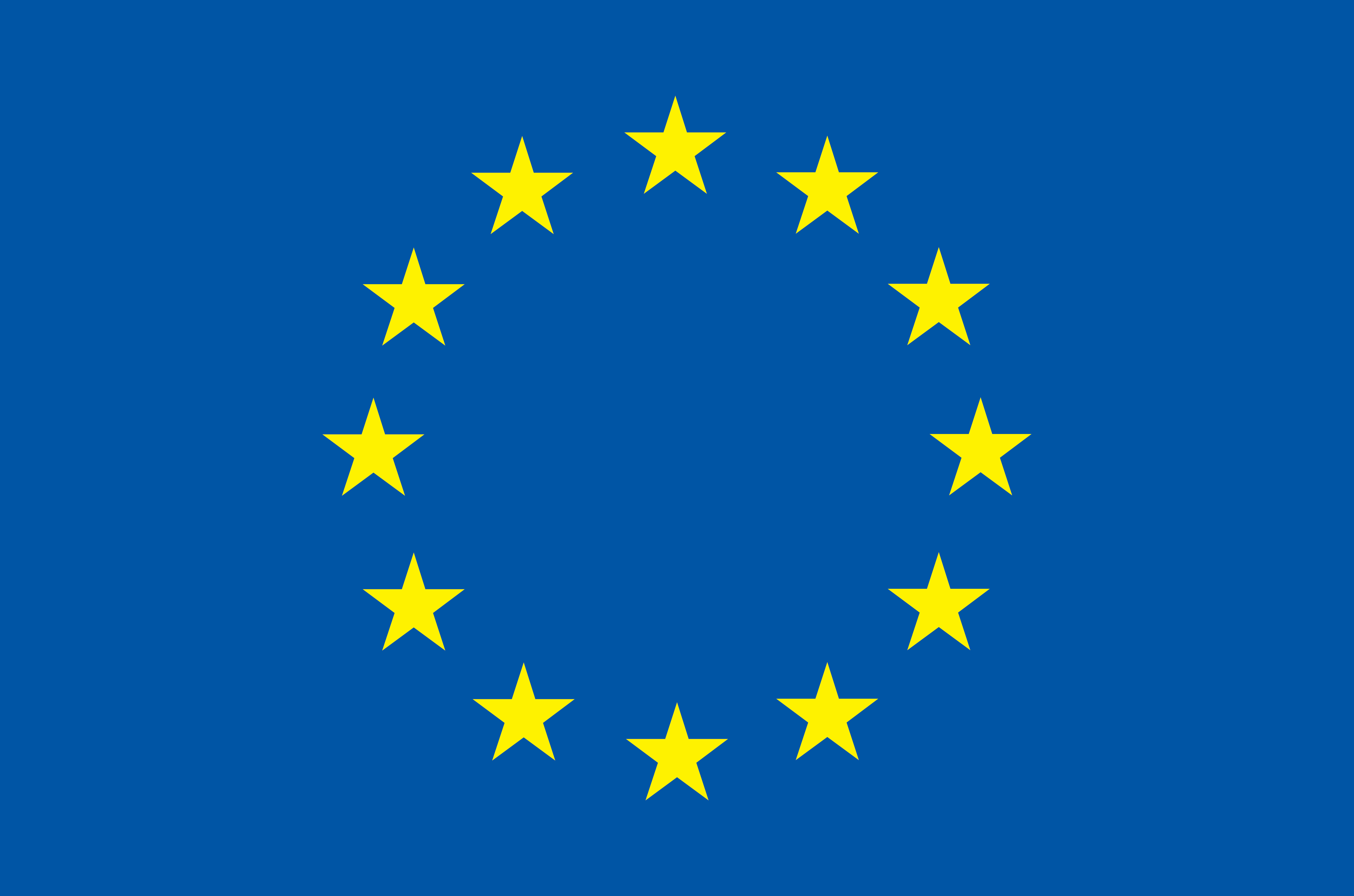
Course content
- Topic 1: Design and characterization of immobilized biocatalysts
- Topic 2: Design of reaction cascades
- Topic 3: Process Intensification and Scaling
Learning goals
After completing the MOOC, participants will be able to:
Learn about the different types of immobilization from different angles, such as the carrier structure or the chemistry behind the process.
Acquire knowledge on how to characterize immobilized enzymes, from fundamentals to sophisticated approaches.
Understand the motivation of establishing multi-step enzymatic processes, particularly related to industrial applications.
Contextualize the usefulness of retrosynthetic approaches in biocatalysis, enabling the choice of the best synthetic routes.
Understand the principles of chemical engineering, mass and energy transfer parameters, leading to the selection of the best processing conditions.
Learn how to set-up intensified processes en route to industrial scale-up, with a holistic vision covering both the reaction (upstream) and the product isolation (downstream) steps.
Prerequisites
Basic knowledge of biochemistry, organic chemistry, and chemical reaction engineering is expected. Completion of MOOC: “Tailored materials and Enzymes for Industrial Processes - Basic Module” is recommended.
Course schedule
The MOOC is divided into 8 units. Every week one unit is published. Each unit contains at least one lecture video, accompanying transcripts, sometimes bonus material in the form of an experimental video or an industrial interview and a self-assessment quiz to check the learning goals.
Synchronous phases are not planned so that learners can work through content at their own pace.
Certificate
For actively participating in the course you will receive an automatic certificate which includes your username, the course name as well as the completed lessons. We want to point out that this certificate merely confirms that the user answered at least 75% of the self-assessment questions correctly.
Licence
This work is licensed under Creative Commons - gleiche Weitergabe 4.0 International (CC BY-SA 4.0)
Course instructor

Prof. Dr. Selin Kara
INTERfaces & DECADES coordinator; Prof. at Institute of Technical Chemistry, Leibniz University Hannover, Germany; Prof. at the Department for Biological and Chemical Engineering, Aarhus University, Aarhus, Denmark
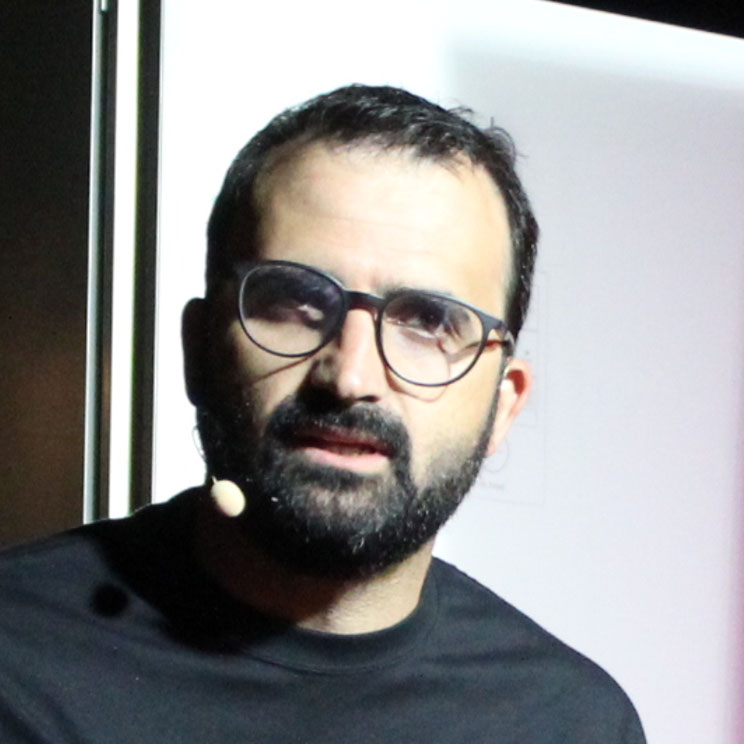
Prof. Fernando López Gallego
Prof. at CICbiomaGUNE, San Sebastián, Spain; Member of INTERfaces
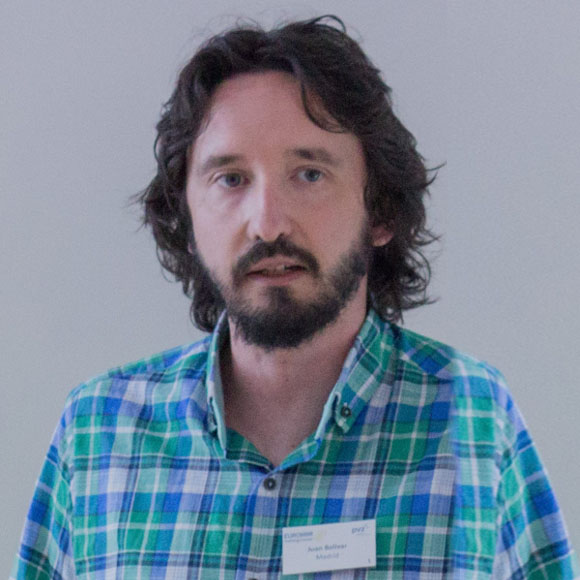
Assoc. Prof. Juan Manuel Bolivar
Assoc. Prof. at the Complutense University Madrid, Madrid, Spain; Member of INTERfaces

Prof. Harald Gröger
Prof. at University of Bielefeld, Bielefeld, Germany; Member of INTERfaces
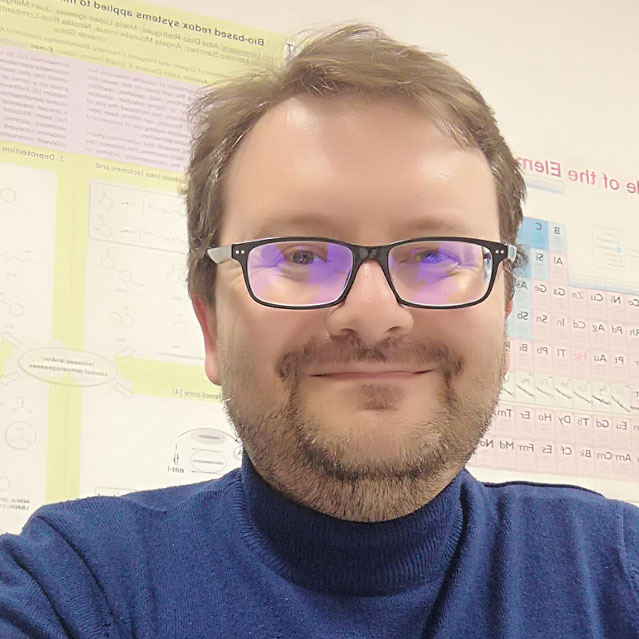
Prof. Iván Lavandera
Prof. at the University of Oviedo, Oviedo, Spain, INTERfaces Member
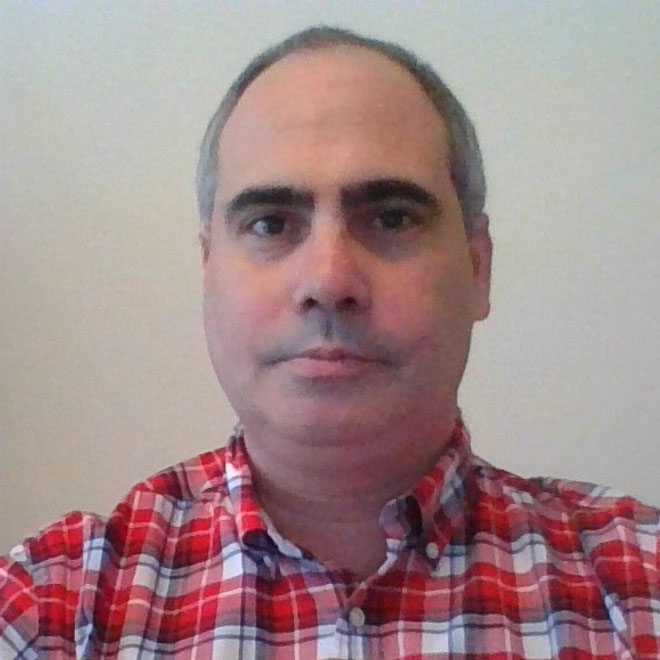
Prof. Vicente Gotor-Fernández
Prof. at University of Oviedo, Oviedo, Spain; Member of INTERfaces
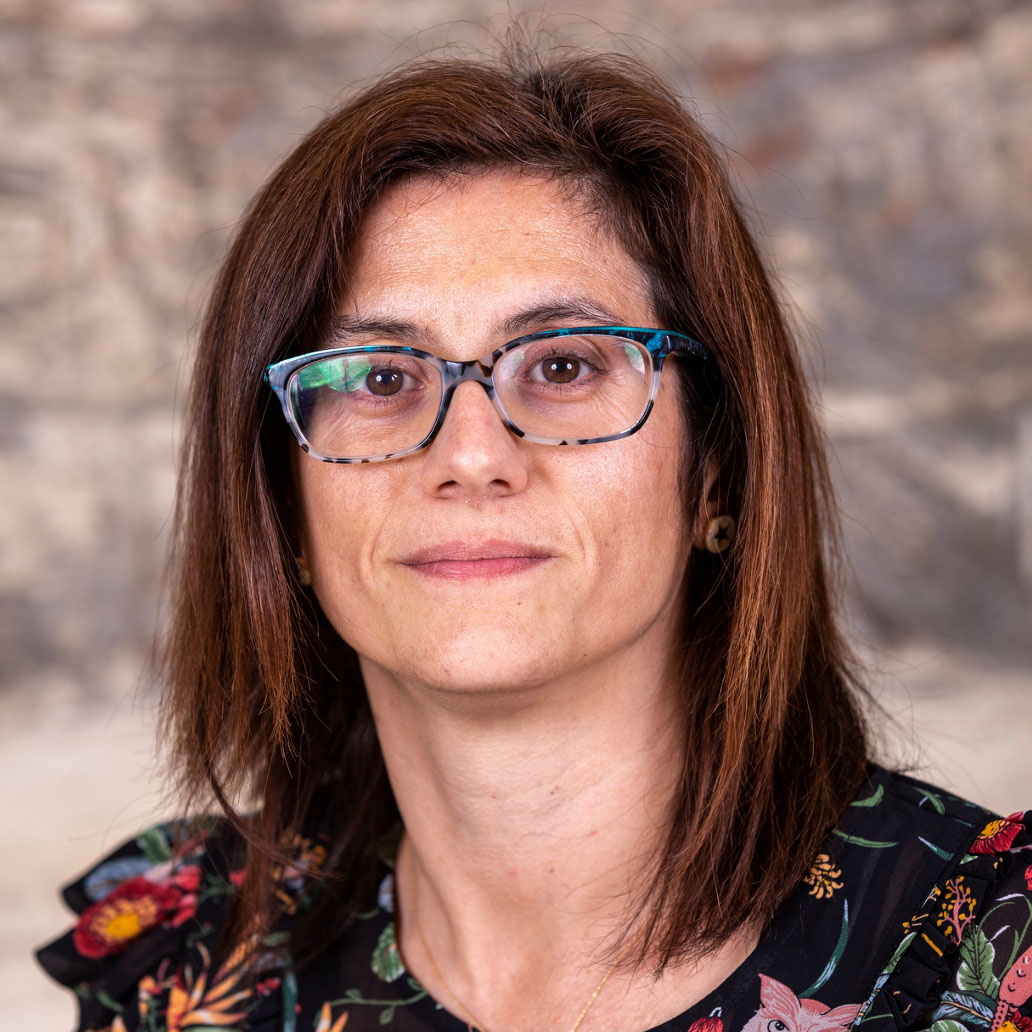
Dr. Dr. Alba Díaz-Rodríguez
Contribution with a lecture in her capacity as member of the SynBio group and chemistry scientific leader in ChemDev GS at Glaxo Smith Kline (GSK); partner of INTERfaces.

PhD Laura-Carlota Paz
The development of this MOOC has been supported by Laura-Carlota Paz, PhD, in her capacity as Project Manager of INTERfaces. Her tasks lay in coordination, facilitation, quality control and setup of the MOOC courses in the iMooX online system.
Partners
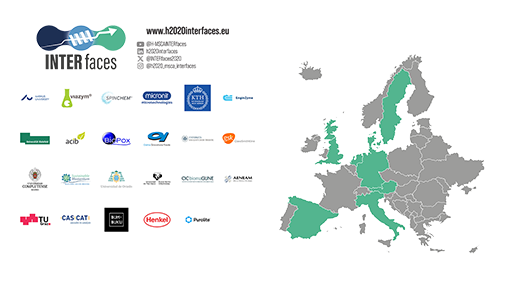
INTERfaces – Heterogeneous biocatalysis reaction cascades training network H2020 Marie Skłodowska-Curie Actions (MSCA) Innovative Training Networks (ITN) – European Industrial Doctorates (EID)
{mlang other}12 Non-academic partners ranging from high-tech SMEs to large producing companies and 11 academic institutions offer an intersectoral and interdisciplinary environment to provide 14 PhD candidates with outstanding employability profiles for the European Biotech Sector. Together, they build this MOOC to widen the knowledge in the field of biocatalysis and to give students the chance to learn from an excellent board of teachers from different faculties and backgrounds.
-

Graz University of Technology
-

INTERfaces
